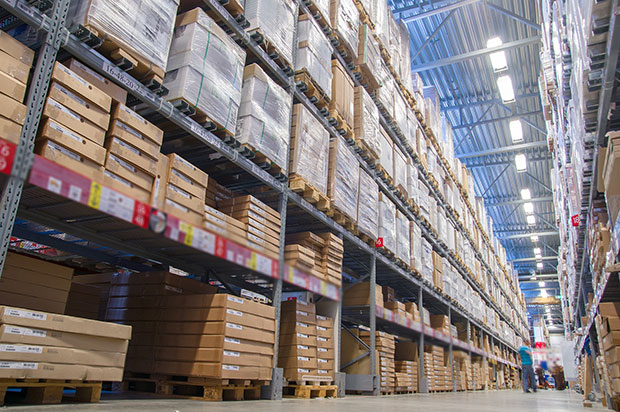All types of packaging for transit – either shipping boxes or cartons are usually manufactured from cardboard or corrugated board and designed so that goods reach their intended recipient without damage. As well as boxes, transit packaging also covers other key areas such as edge protection and pallet wrapping.
 This number one priority for packing and moving goods from A to B without damage, now has the added requirements for it to be done in a sustainable manner.
This number one priority for packing and moving goods from A to B without damage, now has the added requirements for it to be done in a sustainable manner.
While sustainability looks different across differing industries, organisations and brands are looking to a supply partner who takes sustainability seriously when it comes to supply chain logistics. The increase in the use of paper packaging for example is being driven by the ever-increasing demand for sustainable products by end-users and consumers.
It is important to look at the widest impact of all materials, not only their manufacture but also their recyclability. Switching to alternative, seemly more sustainable options can sometimes lead to additional issues, resulting in higher energy, water-use or increased CO2 emissions in production and transport. The argument is not a simple one pitting plastic versus paper for example. There are many disadvantages to using both materials and we should be using them responsibly to ensure they are sustainable, recyclable, reusable, biodegradable and reduce landfill.
Being more efficient and mechanising some parts of fulfilment can also deliver sustainability through reduced waste and better productivity.
As one of Europe’s leading packaging suppliers, Southgate Global, is committed to developing a line of alternative products to expand its current range and significantly reduce packaging waste and plastic content. In the last 12 months, the company has launched the largest number ever of sustainable products from carton sealing, paper mailers and void fill, as well as machinery to increase productivity.
In fact, Southgate has committed to introducing sustainable alternatives for all of its key product lines.
Looking at the widest possible issue of sustainability and environmental impact includes automation too. Using equipment for case taping, stretch wrapping, shrink wrapping and strapping are processes where automation can drastically increase productivity, often while improving the end result and reducing material usage.
It has been reported that 140,000 tonnes of pallet stretch wrap is used annually in the UK. Plastic stretch wrapping film is a major contributor to packaging waste. That is why Southgate offers an opportunity for companies to reduce or eliminate plastic wrapping by using Power pre-stretch pallet wrappers, where the turntable and robot can slash film usage by up to 75%. This can also be combined with edge boards to protect the edges of the pallet load from chafing. Strapping can entirely replace film, resulting in a drastic reduction in waste plastic. Transpal® anti-slip sheets have a high-friction coating that further increases pallet stability and reduces the amount of strapping needed.
In terms of equipment Southgate launched the new Xtegra Tegrabond Water Activated Tape Case Taper. Water activated tape (WAT), also known as gummed paper tape, which is used in favour of plastic tapes. As the need for sustainable solutions continues to grow in importance, WAT is only predicted to rise in demand.
A significant volume of plastics used in packaging comes from carton sealing tapes which even when removed from cartons before the recycling process, leaves behind adhesive residue that compromises the strength of the recycled cardboard and causes damage to screening and filtering at recycling plants.
One of the main reasons WAT is rapidly gaining popularity for carton sealing is because it has near perfect eco credentials. It also outperforms conventional plastic tapes. Made from 100% recyclable, managed softwood and a natural starch adhesive, it is entirely biodegradable and can be left on cartons sent for recycling as the adhesive simply dissolves in the water used in the process, leaving behind no residue that will damage equipment or harm the environment.




Comments are closed.